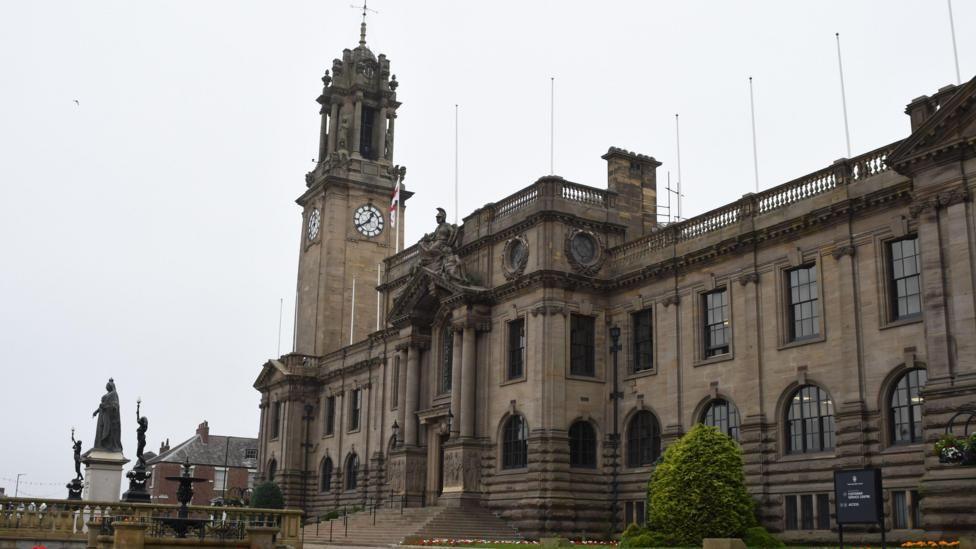Debt owed by North East councils tops £4.3bn

South Tyneside had the highest debt per person out of the seven councils
- Published
Rising levels of debt owed by councils in the North East now totals more than £4.3bn, figures have shown.
New data reveals the amount owed to lenders by the seven local authorities which cover Northumberland, Tyne and Wear and County Durham jumped by almost £200m in the 2024/25 financial year.
Analysis carried out by the BBC's Shared Data Unit found that the combined debts of all councils in the UK is now £122.2bn, an increase of £7.8bn in a year.
Experts say that debt is not inherently bad for councils and borrowing has "largely worked" at a time when authorities are grappling with rising costs in social care, in particular.
Councils can borrow to put money into improvements to schools, leisure centres and other critical infrastructure, as well as investing in commercial ventures with the aim of generating income that can help make up the gap left by government grant cuts over the last 15 years.
'Entirely under control'
Among the North East councils, South Tyneside had the highest debt per person at £4,947.
That is the ninth highest in the country and is six times more than County Durham's, which is the lowest in the region, according to the Local Democracy Reporting Service. Durham County Council had previously been led by a coalition before it was taken over by Reform UK in May's local elections.
Councillor Jim Foreman said the Labour-led council had "invested in the future of South Tyneside and that investment is paying dividends". He said it was now borrowing less money due to higher interest rates.
The largest debt level overall in the North East was held by Northumberland County Council, whose total increased by £93.7m in the 2024/25 financial year to reach £834.5m
Councillor Glen Sanderson, the Conservative leader, said: "While many councils are in dire financial straits - this authority is in a very solid position. Borrowing is entirely under control."
North Tyneside Council, while having the second lowest overall debt in the UK, reported the biggest increase in borrowing in the past year - with its debt level rising by almost 21%.
Jon Ritchie, the Labour-run authority's director of resources, said the debt increase was partly due to borrowing £28.5m to buy its office building at Quadrant East, which he said would save more than £11m over the next 19 years.
Jonathan Carr-West, of the Local Government Information Unit, said the key part was a council's ability to pay the debt back and how it comes to the level of revenue that assets are bringing in.
"Where overall this has largely worked for local government, there are a few councils - and we know the famous examples like Thurrock, Woking - that have ended up with unsustainable amounts of debt," he said.
Councils like Nottingham, Woking and Croydon have had to issue section 114 notices, effectively a declaration of bankruptcy, linked to failed investments and spiralling debts over recent years.
Follow BBC North East on X, external, Facebook, external, Nextdoor and Instagram, external.
Get in touch
Do you have a story suggestion for BBC North East & Cumbria?
